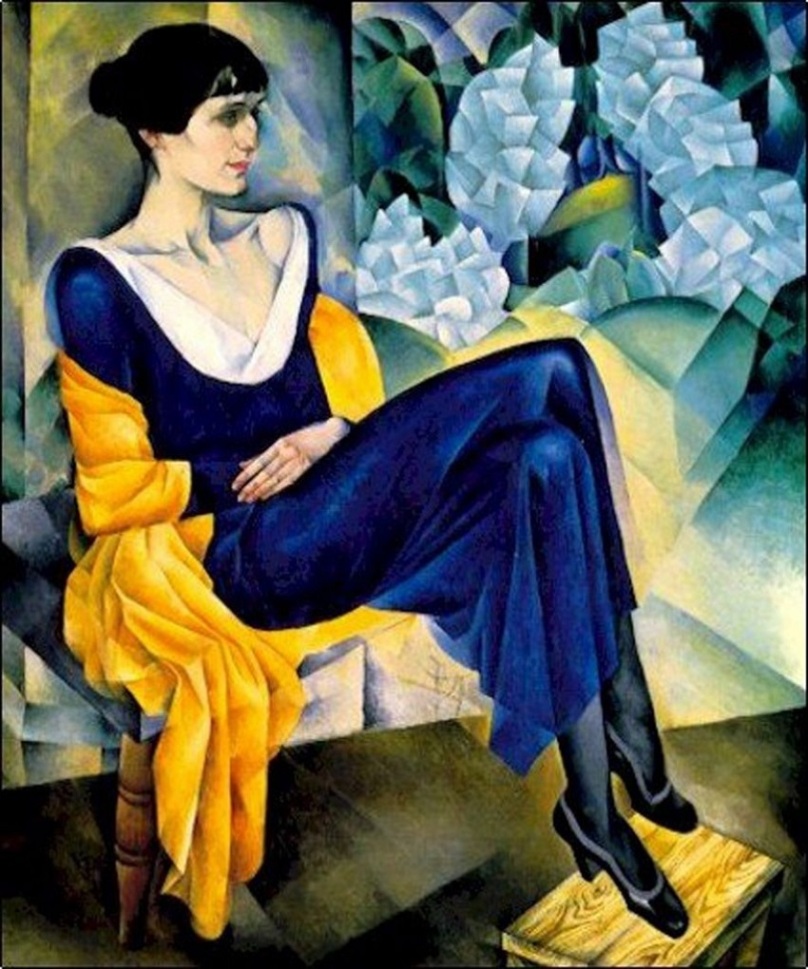Anna Akhmatova (23 June 1889, Odesa, Ukraine – 5 March 1966, Moscow, Russia)
Occupation: Poet, translator, memoirist
Nationality: Russian/Soviet
Literary movement: Acmeism

Portrait of Anna Akhmatova by Nathan Altman, 1914
March Elegy by Anna Akhmatova
I have enough treasures from the past
to last me longer than I need, or want.
You know as well as I . . . malevolent memory
won’t let go of half of them:
a modest church, with its gold cupola
slightly askew; a harsh chorus
of crows; the whistle of a train;
a birch tree haggard in a field
as if it had just been sprung from jail;
a secret midnight conclave
of monumental Bible-oaks;
and a tiny rowboat that comes drifting out
of somebody’s dreams, slowly foundering.
Winter has already loitered here,
lightly powdering these fields,
casting an impenetrable haze
that fills the world as far as the horizon.
I used to think that after we are gone
there’s nothing, simply nothing at all.
Then who’s that wandering by the porch
again and calling us by name?
Whose face is pressed against the frosted pane?
What hand out there is waving like a branch?
By way of reply, in that cobwebbed corner
a sunstruck tatter dances in the mirror.









